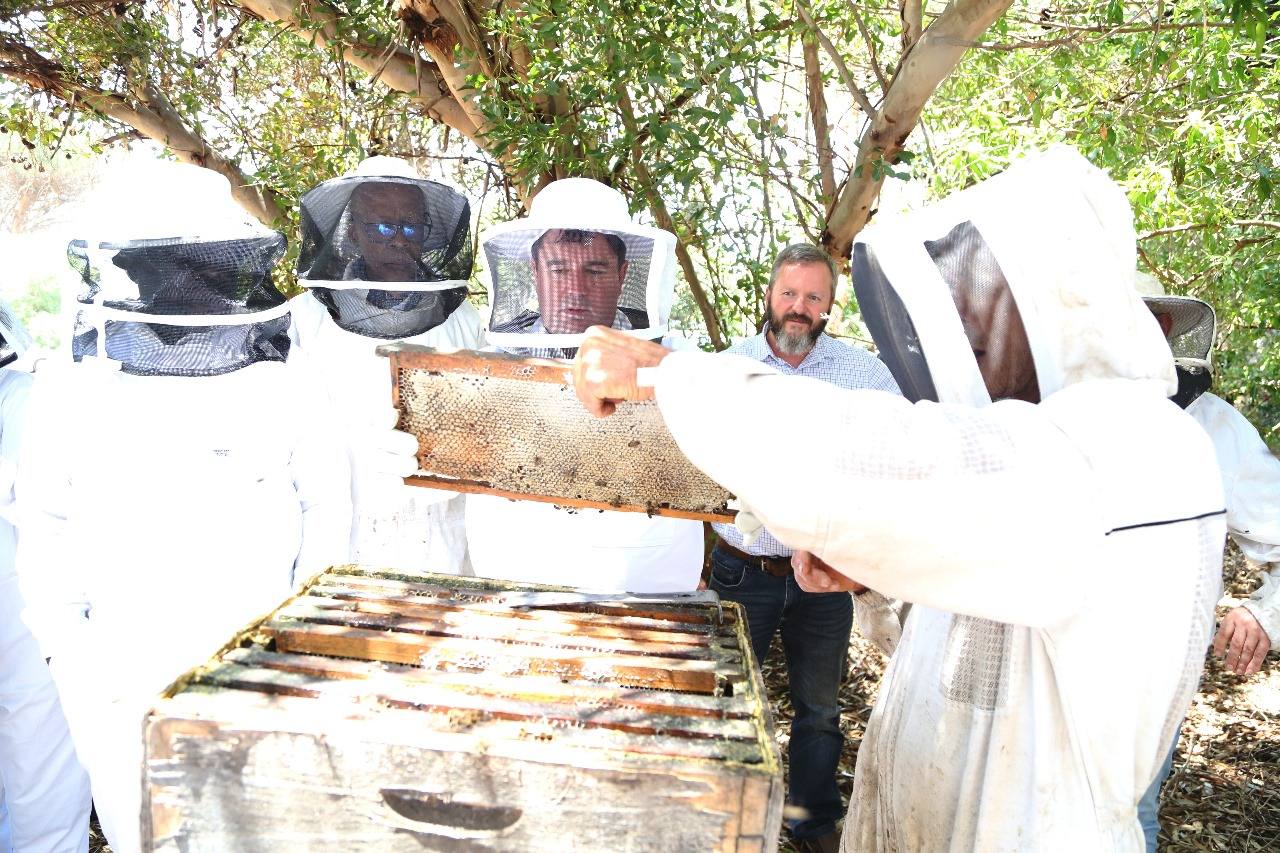The humble honeybee, deemed the “farmer of the sky” by Minister of Agriculture John Steenhuisen, is officially valued at a staggering R10 billion annually to South Africa’s food production. This was the core message at the Beekeeping Awareness Field Day, held on Monday, 10 November, 2025, at Oude Raapkraal, West Lake, where the Minister unveiled a comprehensive strategy to safeguard the industry from biosecurity threats, habitat loss, and the rising tide of product adulteration.
The Minister’s address underscored the indispensable role of bees—specifically the indigenous Cape and African honeybee subspecies—in ensuring food security. With nearly 75% of South Africa’s food crops relying on bee pollination, from Western Cape almonds to Limpopo citrus, Steenhuisen warned: “No bees, no food. No pollination, no prosperity.” The event served as a critical follow-up to previous commitments, establishing a firm collaboration between the government and the South African Bee Industry Organisation (SABIO) to support key agricultural outcomes, including increased production and enhanced food security.
Counterfeit Honey Crackdown and Export Ambitions
Beyond pollination, the Minister focused on the need to protect the honey value chain. While South Africa produces up to 2,500 tons of honey per year, consumption far exceeds this, leading to heavy reliance on imports. This demand has opened the door to “very poor quality and sometimes adulterated honey.”

In a clear commitment to consumer protection and local industry support, Steenhuisen announced that the Department of Agriculture’s Inspection Services will conduct a major operation in December. This action is designed to sweep store shelves clean of products “labelled and sold as honey-based syrup,” ensuring citizens receive the quality goods they intend to purchase.
Crucially, the government is also looking outward. To facilitate access to the lucrative European Union (EU) market, the department is actively finalising the Residue Monitoring Plan. This move is intended to place South Africa alongside exporting nations like Tanzania and Zambia, transforming beekeeping into a stronger tool for economic empowerment, supporting rural jobs, and bolstering exports.
Protecting the Heartbeat of Farming
The Minister made a direct appeal to the farming community to prioritise pollinator health, noting that pesticide misuse during bloom can destroy entire apiaries overnight. Steenhuisen stressed the necessity of strengthening integrated pest management, encouraging farmers and beekeepers to maintain open communication and adopt responsible spraying practices. “When bees die, farming loses its heartbeat,” he stated.
To ensure the long-term sustainability and resilience of the sector, the department announced progress on several strategic initiatives, designed to address threats from disease and habitat loss. These include the development of a National Beekeeping/Apiculture Strategy, a dedicated Bee Forage Strategy to address shrinking natural food sources, and an AFB (American Foulbrood) Management Strategy, supported by commissioned research from the Agricultural Research Council (ARC).
In his closing remarks, the Minister framed beekeeping not just as a profitable sector, but as the quiet custodian of a healthy environment and biodiversity. The commitments made at Oude Raapkraal signal a definitive step toward creating an industry that is resilient, sustainable, and critical to the nation’s economic and agricultural future.
